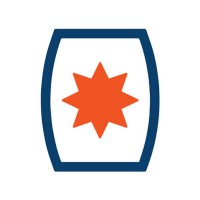
Everywhere Else is a conference series from Nibletz that aims to help entrepreneurs outside of Silicon Valley gain the knowledge and resources to startup right where they are. Verge helps catalyze local startup communities by seeking validation and celebrating learning. So when Nick Tippmann, a long-time Verge supporter and one of the conference’s lead organizers, told me that Everywhere Else was coming to Cincinnati, I jumped at the chance to participate.
An all-star panel. @monicajselby moderating w/ @scottgerber@oconnellryan@thederek@robwoodbridge@andrewwarnerpic.twitter.com/lh329O2dlK
— Everywhere Else (@_everywhereelse) September 30, 2013
The startup conference had all the right ingredients: high-quality speakers, engaged and inspiring attendees, and a local tech startup community that shined as the host. Here is a quick rundown of what I learned and most enjoyed:
Startup Lessons, Leadership Insights and Winning Strategies from Everywhere Else Cincinnati
Your Startup Shouldn’t Look Like a Startup
After a>m Ventures managing partner Patrick Woods‘ awesome presentation that illustrated why bold brand personalities succeed (hint: people don’t buy what you make, they buy why you make it), I was able to catch up with him over lunch. We discussed an argument he recently made on the Medium blog–that startups shouldn’t market themselves as startups. Or, in other words, that the typical startup homepage design (“The easiest way to email” and big, simple icons) is a giant missed branding opportunity.
While it’s true that a homepage must capture and retain a visitor’s attention quickly, Patrick argues that humans are, it turns out, curious, and he asks the right question:
“Wouldn’t you want to say something meaningful and interesting instead of spouting out a basic description of your features?”
And, since most visitors already have some idea of what it is that you do, why insult their intelligence by wasting their time? Don’t market your startup just like every other startup. Market it like your startup (here are some examples from Patrick).
Why Superconnectors are Taking Over the World
Entrepreneurs are keenly aware of how limited our time and resources are, and as we lean on our teams, friends and colleagues for support, we’re often quick to judge how someone might be able to help us. But, as YEC founder Scott Gerber says, asking how can you help me? often does us more harm than good. Instead, ask how can I help you?
If you can isolate yourself from distraction, forge real connections and make a meaningful difference for people, you’re not just helping them–you’re also increasing your social capital at the same time. And as we are increasingly connected every day, social capital is often the true currency entrepreneurs trade with. Check out Scott’s insightful full presentation here.
How to Build You to Build Your Startup
Infographic storytelling startup Lemon.ly‘s founder, John Meyer, believes that early-stage founders in particular need to ensure the effort they pour into their startups is matched by effort put into working on themselves. Since a very young company’s success rests so squarely on the founder’s shoulders, the founder must be capable of standing strong in more ways than one. John used quotes from thought leaders to illustrate his point:
- Execute on being you. -Gary Vaynerchuk
- When human judgment and big data intersect there are some funny things that happen. -Nate Silver
- It is not enough to be busy. The question is: what are you busy about? -Henry David Thoreau
- The difference between successful people and very successful people is that very successful people say “no” to almost everything. -Warren Buffet
- Everyone has highs and lows that they have to learn from, but every morning I start off with a good head on my shoulders, saying to myself, “it’s going to be a good day.” -Lindsay freakin’ Lohan
- I don’t know the key to success, but the key to failure is trying to please everybody. -Bill Cosby
- If you really want to know where your destiny lies, look at where you apply your time. -Mark Cuban
John’s key message certainly rings true for me: you and your startup are difficult to separate, and you shouldn’t be. That doesn’t mean you should be a workaholic; working on yourself is working on your company. Put your time into both or risk succeeding at neither.
Great Work Happens Everywhere Else
People and organizations like Think Big Partners‘ Blake Miller in Kansas City and co.lab‘s Enoch Elwell in Chattanooga, and countless others I met at Everywhere Else help startup ecosystems thrive around the country.
Modulus, the node.js application platform for developers, took home the conference’s grand prize, but there were many quality startups represented. One of my favorites, Spacify, aims to do for storage what airbnb did for hospitality.

As I plugged into the midwest’s ever-growing tech startup scene and represented the Indiana startup community at Everywhere Else Cincinnati, I was joined by fellow starter-up and friend Denver Hutt. Denver is not only a great leader and a bright start in the Indy startup world, but she has recently encountered some very unfortunate new challenges.
As she stood on the Everywhere Else stage, bravely sharing her recent cancer diagnosis and what has happened since, she told the audience about what she has recently learned about herself, entrepreneurship, and our community. The audience fell silent, gripped by her story, and as I looked around the large conference ballroom packed with the midwest’s leading movers and shakers, I was proud not only of Denver and the Indy Verge and Speak Easy communities, but of the motivating and inspiring lives that entrepreneurs create for themselves Everywhere Else, too.
There are going to be three Everywhere Else conferences this year, and the Nibletz team will continue to enhance the conference experience with every iteration. If you’re a startup founder, do yourself a favor and attend one. With a little preparation and effort, you’ll leave with new friends, knowledge, strategies and the motivation to take action.


